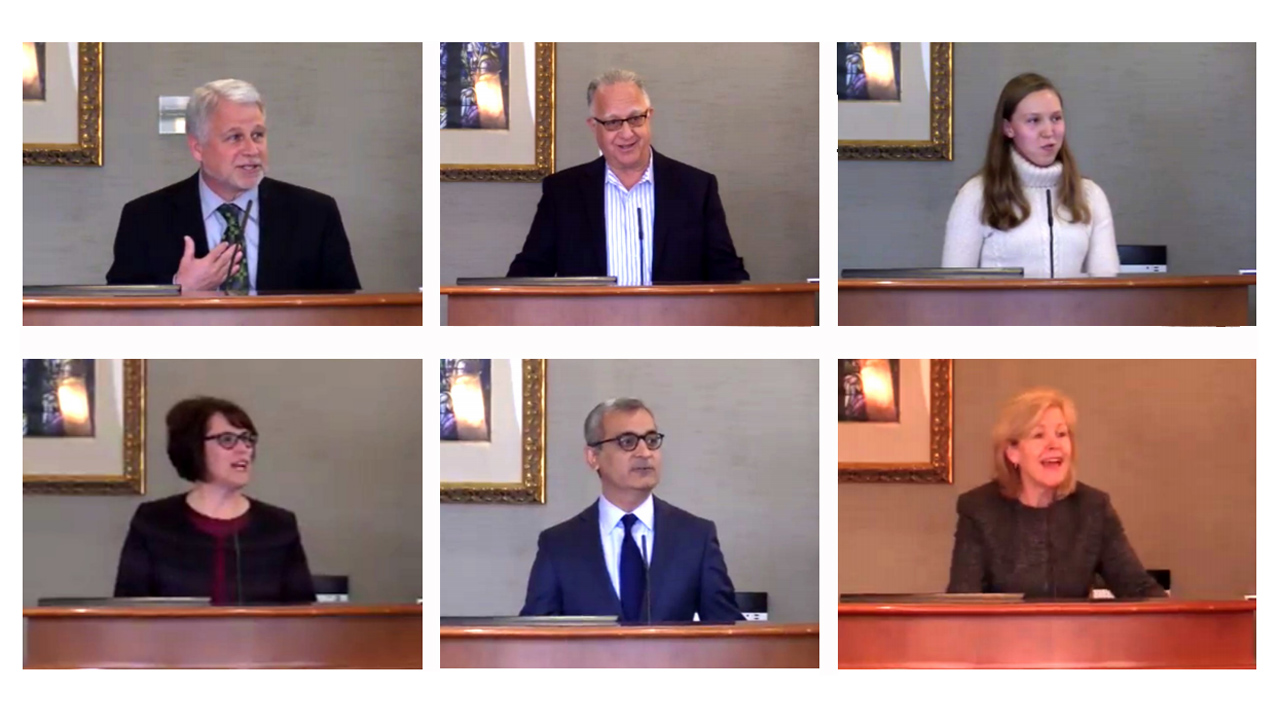Fall Campus Communication Symposium Held

The Staff Senate and Human Resources were proud to present the University staff and
This October, the event featured speakers from the following areas: Study Abroad, Registrar, Associate Provost and Information Technology. You may find the speakers’ bios here. A few highlights from each of their talks are listed below.
Rev. John Sivalon, director of global learning programs and senior adviser for study abroad.
“Looking forward into the future and trying to fill that strategic plan, we thought: Let’s try to make it as easy as possible for faculty to be able to go overseas and run their programs. They will only have to worry about the content of their program. Other people will worry about the structure and all the support services that have to be in place for a faculty member to do that.” – Fr. Sivalon
-According to Institutional Research, 249 students went overseas, 95 from CAS, 93 from PCPS and 54 from KSOM and seven undeclared. Additionally, dozens of students went on summer trips abroad.
-About 70 percent go on faculty-led abroad trips.
-Ideally, we will have four or five sites around the world that faculty can go to in order to teach.
- Study abroad opportunities influence our students’ learning tremendously. Susannah Ilseman, a student who participated in Bolivia trip explained, “It was a privilege to get to attend this trip. As I look back on my experience, I think of my reflection into the Jesuit ideals -- education not just for the sake of education, but education for the sake of for and with others...Getting to talk with people who are from there, listen to their stories and the experiences they have, and getting to ask them, what are their hopes for the future. What can I do? How can I listen?”
Julie Ferguson, registrar.
-The office is the steward of student records, tasked with upholding the integrity of the institution by maintaining a complete and unabridged record of student’s academic endeavors, as well as positioned to interpret, enforce and communicate academic and institutional policies to all campus constituencies.
-The office does everything from class scheduling and registration to grade reporting and transcript services. In addition, they transfer credits, develop the academic calendar, along with author policies and more.
-Launched e-transcripts July 31. For more information http://www.scranton.edu/academics/registrar/undergraduate/transcript-request.shtml
-Future goals – to make all applications, student-centric and paperless.
Sunil Ahuja, Ph.D., associate provost.
“I am still very much an academic at heart. I am looking forward to teaching, but what I continue to do is remain heavily engaged in my research and scholarship, which I consider to be the motivating force for me. In fact, every morning from 5-6:30 a.m. is my time spent on those sorts of things…that, to me, is a significant part of being part of being part of a university.” – Dr. Ahuja
-Previously worked with the Higher Learning Commission (HLC), which is the largest of the six regional accreditors in the U.S. Semi-governmental and semi-independent agencies. One of the significant changes in the 1950s that occurred: The Department of Education made regional accreditors gatekeepers of Title IV. Saw a broader picture of higher education.
-How do I see University changing in next five years? As external factors continue to evolve, internal conversations will be had: programmatic, enrollment, student demographics, financial.
Susan Bowen, chief information officer.
-The Division of Information Technology consists of 50 professionals, complemented by a student staff of 25.
- Working on improving communications with the campus community:
- New website to introduce IT’s mission and the different departments
- We have outlined our services
- Newsletter that comes out twice a semester, IT Matters
http://sites.scranton.edu/itmatters/
-A system status website regarding planned and unplanned incidences
http://status.scranton.edu/
-Quarterly IT Town Hall meeting for YOU to talk to
http://sites.scranton.edu/itmatters/2017/10/24/it-town-hall-meeting-scheduled-for-thursday-november-28-at-1200-p-m/
-A few projects: technical remediation of security assessment; new IT governance structure; Banner 9 implementation and self-service e-advising; new mobile app; Royal Drive; upgrades, plus more.
If you are a staff or faculty member and wish to view the entire symposium, email Julie Brackeva-Phillips (julie.brackeva-phillips@scranton.edu).






